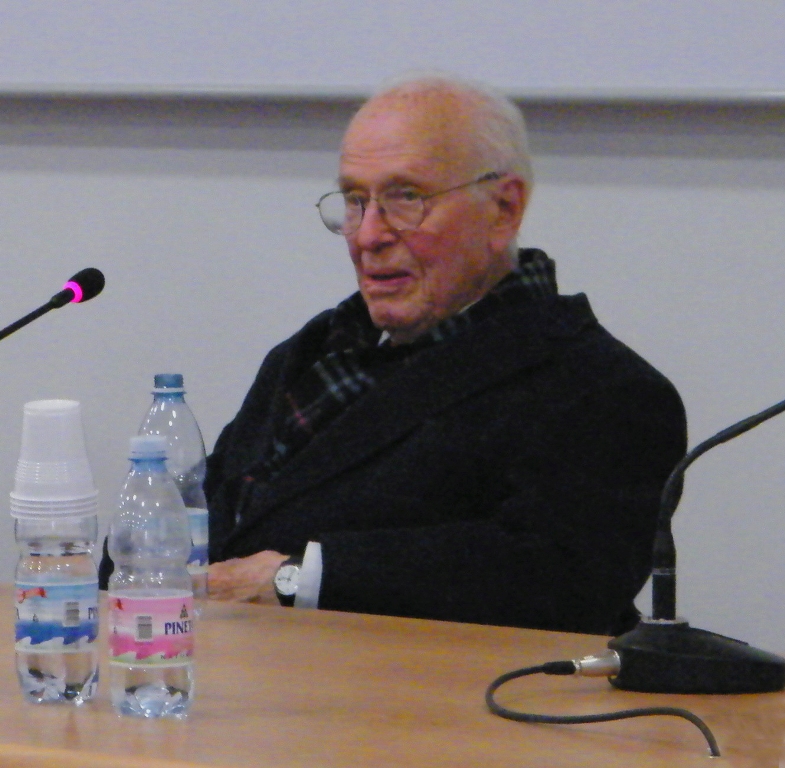 The distinguished geneticist Luigi Luca Cavalli-Sforza died on August 31, 2018, at the age of 96, according to La Repubblica (September 1, 2018). "More than any other human geneticist, Cavalli-Sforza believed in the potential of genes and culture together to trace humanity's origins," wrote the anthropologist John Hawks in his obituary (September 2, 2018). "In the course of his work, he pioneered new ideas and models that brought together these two distinct areas of science. Like most scientists, many of his ideas would turn out to be wrong in the details. But his work helped form the foundation of our current knowledge of human genome variation across the world."
The distinguished geneticist Luigi Luca Cavalli-Sforza died on August 31, 2018, at the age of 96, according to La Repubblica (September 1, 2018). "More than any other human geneticist, Cavalli-Sforza believed in the potential of genes and culture together to trace humanity's origins," wrote the anthropologist John Hawks in his obituary (September 2, 2018). "In the course of his work, he pioneered new ideas and models that brought together these two distinct areas of science. Like most scientists, many of his ideas would turn out to be wrong in the details. But his work helped form the foundation of our current knowledge of human genome variation across the world."
Unsurprisingly for a scientist famous for analyzing the genes of contemporary human populations to obtain insight into their history, Cavalli-Sforza regarded evolution as established science. In "Why It Is Useful to Know the Modern Theory of Evolution" (2009, coauthored with Francesco Cavalli-Sforza), he wrote, "Today evolution is no more a hypothesis and there are ample proofs that it is motored by natural selection. Knowledge of the sources of inherited variation and of the mechanisms that maintain it, at the same time favoring the transformation and differentiation of species, has greatly enriched a well-organized theory. The succession of evolutionary steps leading to the great variety of living organisms is being traced with astonishing precision thanks to the detailed analysis of whole genomes. That species change is no more a hypothesis or a debatable theory, and how and why they do so is becoming a matter of detailed proofs." In the same article, he deplored the existence of religious obstacles to the acceptance of evolution, especially in the United States, and suggested that "differences of importance between religious and scientific views in the interpretation of the mechanisms of evolution ... can be removed simply by more precise explanations."
Cavalli-Sforza was born in Genoa, Italy, on January 25, 1922. He received a M.D. degree from the University of Pavia in 1944. After stints at Cambridge University, where he worked with R. A. Fisher on bacterial genetics, and a series of Italian universities, he was a professor at Stanford University from 1970 to 1992. Among his books were The Genetics of Human Populations (1971, coauthored with Walter Bodmer), The History and Geography of Human Genes (1994, coauthored with Paolo Menozzi and Alberto Piazza), and The Great Human Diasporas (1995, coauthored with Francesco Cavalli-Sforza). His honors included membership in the National Academy of Sciences and the Balzan Prize for 1999.
